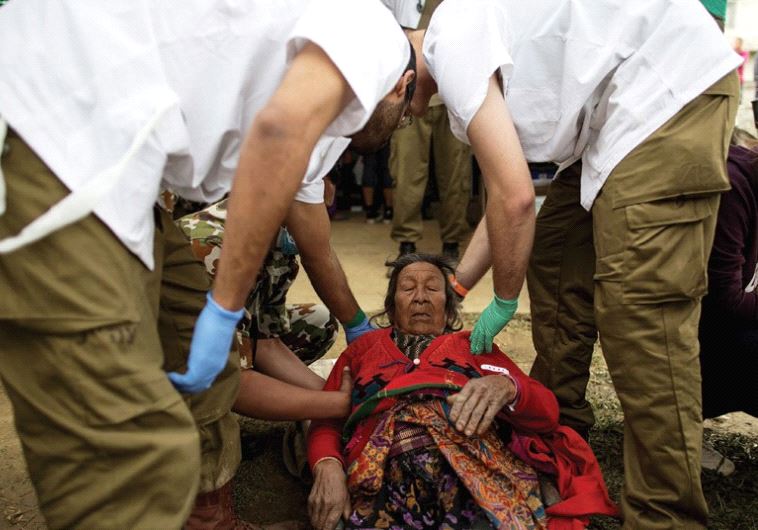UN peacekeepers to attend Israeli field medicine forum
The seminar, due to take place in the next few weeks, will focus on Israeli-developed life-saving techniques on the battlefield.
 DOCTORS HELP an injured resident at the IDF field hospital in Kathmandu in 2015.Updated:
DOCTORS HELP an injured resident at the IDF field hospital in Kathmandu in 2015.Updated: